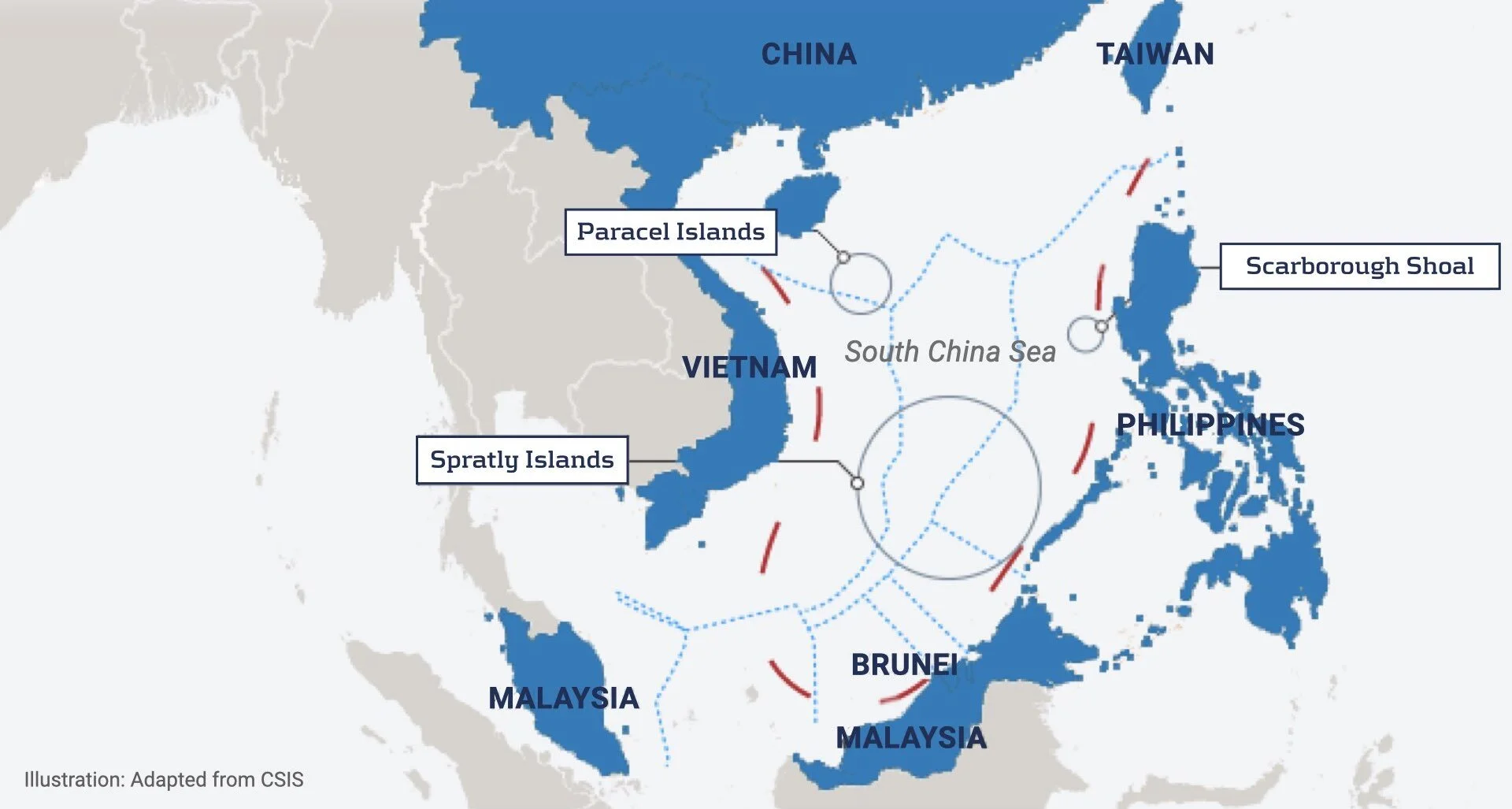Will China’s intensified territorial claims affect the innocent passage of the South China Sea for merchant shipping?
14 April, 2021
In 2012, China revamped its maritime strategy to become a “maritime power”, and incidents involving Chinese vessels increased significantly between 2012-2015. In 2020 there was only one incident in the SCS and China's island-building efforts in the SCS appear to be nearing completion. This briefing provides a security outlook for merchant shipping in the area.
By Katie Zeng Xiaojun - north, south and central Asia analyst
China’s interest in the South China Sea (SCS) dates back to the end of World War II and the defeat of Japan. The then Republic of China started to make repeated territorial claims to the SCS, including the Paracel and Spratly Islands. Other than sending their naval ships to the area, China opened research stations, as well as defence silos and military-grade runways on the Fiery Cross and Subi Reefs. China has continued to make territorial claims throughout the SCS and has engaged in a well-documented reclamation campaign on these small islands and reefs.
Although there is a constant face-off between China and other claimants asserting claims in the area, it is unlikely that these incidents will affect the innocent passage of the SCS for merchant shipping. China’s primary goal is an extension of sovereignty to these islands, and to counter the claims of Vietnam, Taiwan, the Philippines and others. While it could, in theory, restrict innocent passage under the law of the sea convention, if the islands were its territorial waters, the focus would unlikely be on merchant traffic.
In 2012, China revamped its maritime strategy to become a “maritime power” capable of safeguarding its maritime rights and interests. This position reflected its shifting national priorities and was reinforced in a 2015 defence white paper. The shift was also evidenced by the steep increase in the number of incidents involving Chinese vessels from 2012 to 2015, accounting for more than 70 per cent of the total incidents in SCS. Most of the incidents were directed against fishing trawlers in the Paracel and Spratly Islands as China asserted its capabilities.
Currently, Chinese island-building in the SCS appears to be nearing completion. The number of incidents in the SCS had also dropped significantly from 15 in 2015 to one in 2020. China is expected to continue to deploy its coast guard and maritime law enforcement agencies. In a sense, these moves can be seen as part of China’s larger Belt and Road Initiative, which includes emphasis on the security of sea lanes – particularly the SCS.
China has started on a more diplomatic way to assert its sovereignty by discussing the code of conduct for the SCS with other regional countries. At the same time, particularly under President Xi, there has been a stressing of the SCS and the reclaimed islands as ‘core national interest’. As such, China is likely to continue to take a hard line diplomatically with other claimants.
While it is not clear if China will extend an exclusion zone around its new islands, confrontations, standoffs or incidents with countries that claim a stake in the Spratly and Paracel Islands are likely to continue. As the incidents are primarily targeting fishing trawlers and military vessels, it is unlikely that the innocent passage of SCS for merchant shipping will be compromised due to territorial claims in the coming months. Political disputes are unlikely to be resolved in the short term, however, this is likely to see the continuation of tensions in the region – with the potential for aggressive naval manoeuvres and enforcement operations.
FREE TRIAL:
Want to try our risk assessment and planning tool?
Get free, unlimited trial for 2 weeks to our Risk Intelligence System. You will have access to all system features for up to five users - from desktop or tablet, at sea, in port, or on land - including access to the 24/7 Duty Watch Team:


